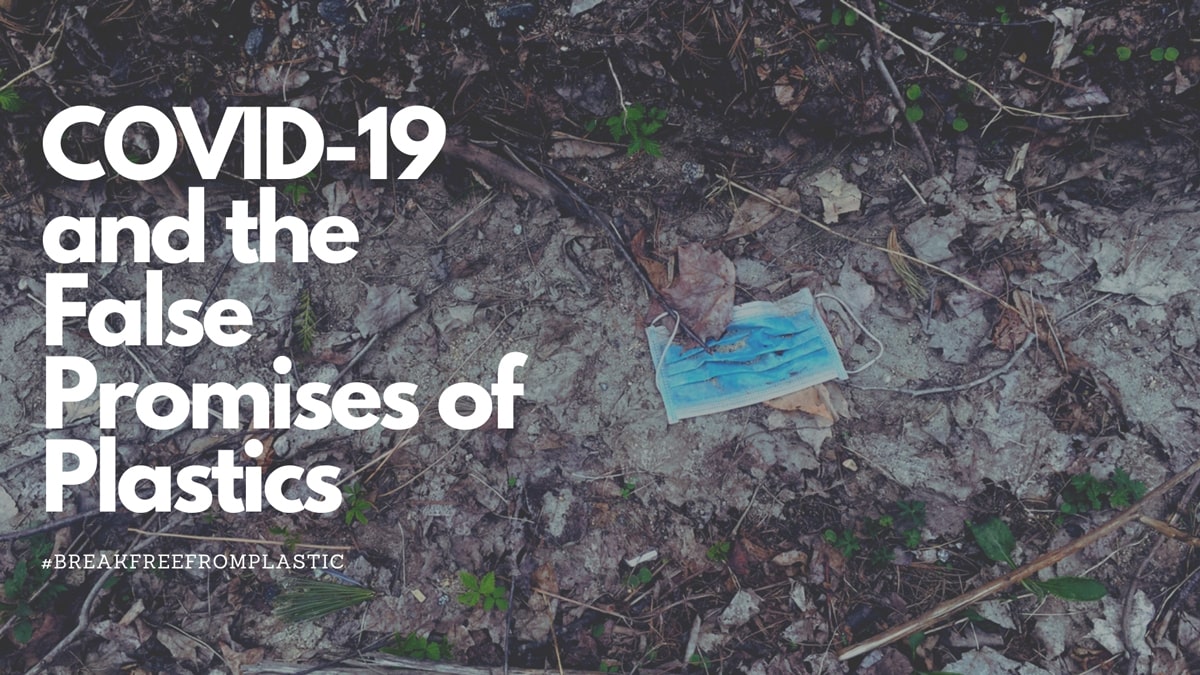Plastic Flood Amid the Pandemic
The COVID-19 pandemic has dramatically caused an increase in plastic consumption globally. This has been necessitated by the need to safeguard ordinary people and communities from the transmission of COVID-19. The result, however, is a dramatic increase in masks, syringes, gloves, and other PPEs. Recently, plastic syringes have been found on beaches, posing public health issues in communities.
To add insult to injury, strict lockdowns and quarantine measures lead to an uptick in food delivery and e-commerce, further aggravating the increase of plastic utensils, cups, and plastic bags that have proliferated in Asia Pacific. Coincidentally, lockdowns and strict quarantine measures have weakened waste management regulations and suspension of bans on single-use plastics in Indonesia, Thailand, and the Philippines.
Governments, businesses and ordinary citizens alike have justified switching back from disposables and plastics because of hygiene. Since plastic packaging can be disposed of shortly after consumption, plastic packaging was generally perceived to protect the consumer from virus transmission. This has been a misconception, especially at the onset of the pandemic.
The plastic and petrochemical industries work together to capitalise on the narrative that food and other goods are safer when wrapped in plastic. They have used this angle to spread misinformation, halt single-use bans and regulations, and stoke demand to boost their plastic production exponentially.
Misconceptions on the Plastic Safety
Indeed, during a medical crisis, public safety is of utmost importance. However, our decision-making must be based on expert opinion from medical professionals. We must turn to our medical professionals who have consistently educated us about the crisis we are facing. Last year, scientists, academics, and doctors released a statement declaring that reusables are safe even under pandemic conditions, so long as they are washed properly.
The science is clear. Plastic is not any safer than reusable alternatives in terms of COVID-19 transmission. According to research, coronavirus survives for two to three days on plastic almost the same time as steel and 24 hours on cardboard. Across numerous COVID-19 studies, human-to-human contact (through skin or cough) will more likely transmit coronaviruses than “infrequently handled reusable grocery bags”. A study even went further and claimed that “in terms of single-use options, paper bags at the checkout may be incrementally safer than plastic due to shorter SAR SCoV half-lives on their porous materials”.
Aside from COVID-19, plastics are particularly hazardous to the environment and human health. According to the recently released UNWRAPPED Project report, “many of the chemicals used in plastic packing to achieve the ideal flexibility, colouring, fillers and durability to preserve food can have adverse effects on the nervous, endocrine and immune systems”. Moreover, Environmental health and toxicology experts agreed that the same chemicals found in plastic packaging can transfer into the food we consume and beverages we drink which can cause chronic diseases or interfere with reproduction and development.
Oil’s Second Life with Plastics
With the pandemic halting oil consumption and ushering a record-low drop in oil prices, oil companies are now covering their losses by leveraging plastic production. The International Energy Agency (IEA) reports that the petrochemical industry will account for half of the oil demand growth from now to 2050.
Plastics are not commonly associated with climate change, primarily because it is a less known fact that 99% of plastics are made from fossil fuels, and contribute to greenhouse gas emissions throughout their lifecycle - extraction, production, use and disposal. Moreover, most chemicals needed to produce plastics are sourced from fossil fuels. The global carbon dioxide emissions from plastics are estimated to reach 1.34 gigatons of carbon dioxide by 2030, equivalent to close to 295 coal-fired power plants. If planned plastic production persists, annual emissions will consume at least 10% of the carbon budget and overshoot the 1.5 degrees Celsius target.
Recycling Industry Takes the Hit
The decline of oil prices has caused a reduction in plastic value, making new or virgin plastic production attractive while the recycling sector has taken a hit. Limited operation from quarantine measures have caused financial troubles and threatens recycling across the entire Asian region. Companies now find replacing segments of their packaging or products with recycled plastics less viable.
Similarly, waste pickers have been one of the most vulnerable sectors to the pandemic. Despite working at the frontline in keeping cities and communities litter-free, most waste pickers are still part of the informal economy. Waste pickers account for 15 to 20% of waste collection globally and turn discarded reusable and recyclable wastes into value. With such significance, waste pickers are considered the backbone of plastic waste management. Yet, waste pickers are often left without adequate protective gear or unemployed from the lockdowns and limited recycling operations relying on government relief.
The life cycle of plastic has a manifold impact on both human health and the environment. As countries are slowly transitioning towards just recovery, one of the many lessons we should learn is how the plastic industry has placed itself on the wrong side of the COVID-19 pandemic. We must hold them accountable for the blunder of compromising the environment and climate in a time of global crisis.




